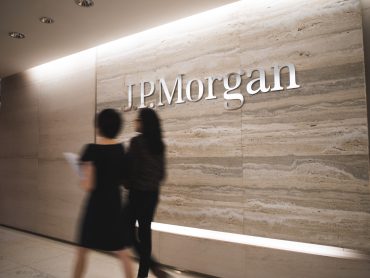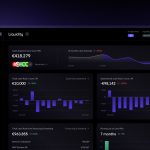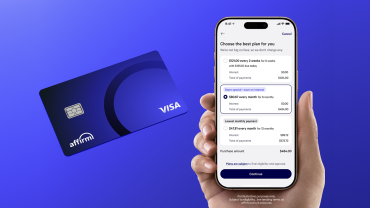
JPMorgan and Chainlink Complete First Cross-Chain Treasury Asset Settlement
5 minute read

Major Banks and Blockchain Providers Successfully Test First Institutional Cross-Chain Treasury Settlement Using Smart Contracts
Three Key Facts
- The real-world asset tokenization market has surged over 260% in the first half of 2025, surpassing $23 billion in total valuation
- Traditional finance has suffered over $914 billion in settlement failure costs over the past decade due to fragmented systems
- This marks the first-ever cross-chain Delivery-versus-Payment (DvP) settlement involving a major financial institution and tokenized U.S. Treasury assets
Introduction
A groundbreaking settlement test between Chainlink, JPMorgan, and Ondo Finance has successfully demonstrated the first cross-chain institutional transaction involving tokenized U.S. Treasury assets. The collaboration executed an atomic settlement that transferred assets from Ondo’s OUSG fund to JPMorgan’s Kinexys Digital Payments network, marking a pivotal moment in bridging traditional finance with blockchain technology.
This achievement represents more than a technical milestone. It validates blockchain’s capability to address longstanding inefficiencies in financial settlements while maintaining regulatory compliance, potentially transforming how institutional capital markets operate.
Key Developments
The settlement utilized Chainlink’s Cross-Chain Runtime Environment (CRE) to orchestrate communication between JPMorgan’s permissioned Kinexys network and Ondo’s public blockchain testnet. The CRE managed the complete workflow, verifying escrow events, initiating payment instructions, and coordinating final settlement.
Ondo Finance’s OUSG, a tokenized U.S. Treasury fund, served as the central asset in this test. The transaction marked the debut institutional settlement on Ondo Chain’s testnet, demonstrating the platform’s capacity for regulated asset tokenization.
The process maintained regulatory compliance by transferring only transaction instructions between networks rather than moving actual assets across chains. This approach minimizes risk while enabling seamless interoperability between different blockchain environments.
Market Impact
The tokenized real-world asset market has experienced explosive growth, with tokenized private credit leading institutional demand. This expansion creates substantial opportunities for cross-chain settlement solutions as assets become distributed across multiple blockchain networks.
Traditional settlement systems impose significant costs on financial institutions through delays and fragmented processes. The automated DvP process demonstrated in this test offers potential cost savings by reducing counterparty risk and settlement timeframes through simultaneous asset delivery and payment execution.
Despite strategic advances, Chainlink’s LINK token experienced short-term price volatility following the announcement, reflecting either market skepticism or broader cryptocurrency market conditions affecting immediate investor sentiment.
Strategic Insights
The collaboration positions Chainlink as critical infrastructure for bridging disparate financial systems. The CRE’s configurability enables handling DvP transactions of varying complexity across both public and permissioned networks, establishing a foundation for future institutional blockchain adoption.
JPMorgan’s participation adds significant credibility to blockchain settlement processes, potentially accelerating institutional comfort with on-chain transactions for regulated assets. Kinexys Digital Payments’ successful interaction with public blockchains expands its settlement capabilities beyond private chain environments.
The test reveals growing institutional appetite for programmable finance solutions. Automated cross-chain settlement workflows open pathways for more complex financial transactions while maintaining compliance with regulatory requirements.
Expert Opinions and Data
Industry analysts view this collaboration as validation of blockchain’s institutional readiness. The involvement of a major financial institution like JPMorgan demonstrates increasing comfort with blockchain technology for regulated asset transactions, potentially catalyzing broader adoption across the financial sector.
The compliance-friendly transaction structure, which moved instructions rather than assets between chains, addresses regulatory concerns while enabling cross-chain functionality. This approach may encourage adoption in heavily regulated markets where compliance remains paramount.
Experts anticipate continued growth in tokenized asset adoption across various asset classes. The successful demonstration of cross-chain DvP settlements provides a blueprint for future implementations, potentially transforming capital markets infrastructure through programmable, automated processes.
The market’s cautious response to Chainlink’s token price reflects typical institutional adoption patterns, where strategic developments may not immediately translate to revenue impacts. However, the long-term implications for blockchain infrastructure providers appear positive as institutional demand grows.
Summary
The successful cross-chain settlement between Chainlink, JPMorgan, and Ondo Finance demonstrates blockchain technology’s readiness for institutional financial applications. The test proved that regulated assets can be settled efficiently across different blockchain networks while maintaining compliance and reducing counterparty risk.
This achievement establishes a foundation for future institutional blockchain adoption, combining traditional finance’s scale with decentralized technology’s efficiency. The collaboration validates the growing convergence between traditional and decentralized finance, offering a pathway for transforming settlement processes across capital markets.








